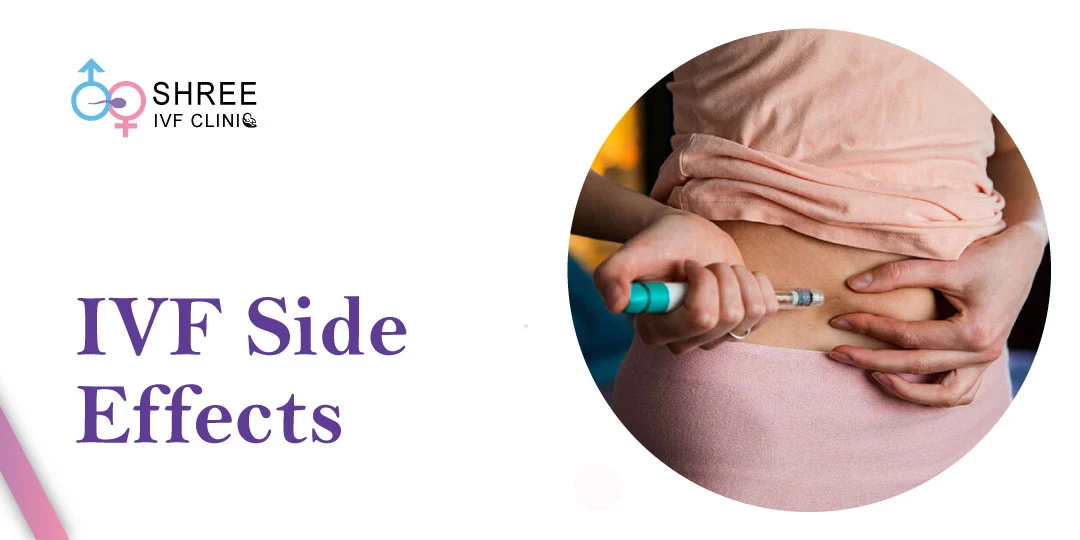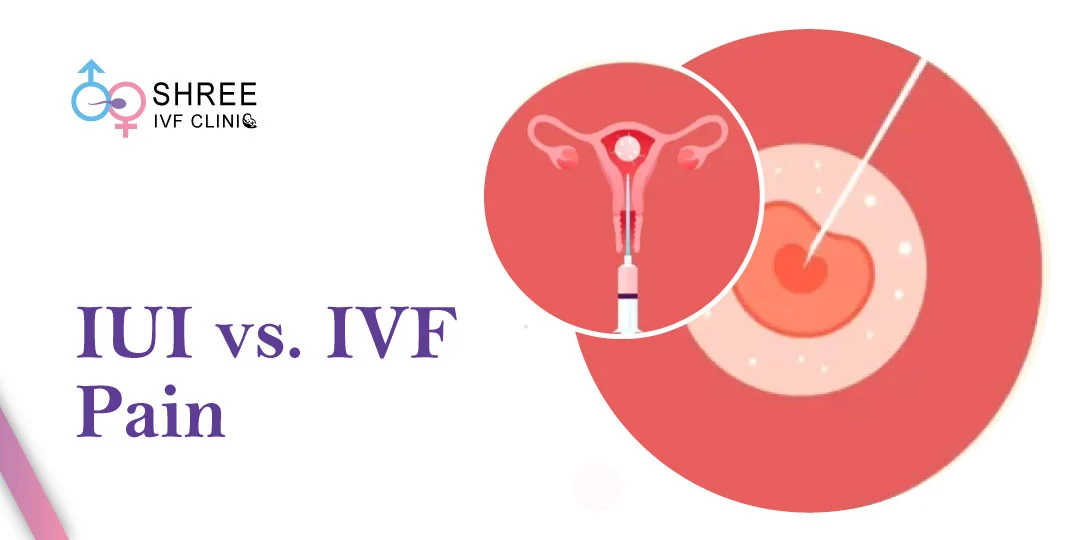After IVF Transfer Pregnancy Symptoms: What to Expect
UPDATED ON 11TH JAN. 2025
The journey of IVF (In Vitro Fertilization) is like planting a delicate seed in a garden. Once the embryo is transferred into the uterus, it’s natural to wonder: “Is my garden blooming? Am I pregnant?” Let’s walk through this beautiful yet nerve-wracking phase, step by step, and explain what signs and symptoms you might notice after the embryo transfer.

AUTHOR
Dr Jay Mehta
Scientific Director & IVF Specialist with 10+ years of experience
TREATMENT
CONDITION
GET IN TOUCH ON
Understanding Embryo Transfer
Imagine you’re a farmer. You’ve worked hard to plant a seed in fertile soil, and now you wait for it to sprout. Similarly, in the IVF process, the embryo (the seed) is carefully placed into the uterus (the soil) to grow into a baby. The symptoms you might feel after this process are signs of whether the seed is starting to sprout or not.
When Do Symptoms Start?
Early Pregnancy Symptoms After IVF Transfer
Mild Cramping
Think of this as tiny gardeners working hard to secure the seed in the soil. You might feel slight pulling or cramping in your lower belly. This is often a sign that the embryo is implanting into the uterus.
– Analogy: It’s like the seed’s roots starting to grab hold of the soil for support.
Spotting or Light Bleeding
A small amount of spotting can occur, often referred to as implantation bleeding. It’s usually pink or brown in color and very light.
– Analogy: Imagine watering a seed and noticing a tiny puddle around it—nothing to worry about, just part of the process.
Breast Tenderness
You may notice your breasts feeling sore or swollen, similar to how they might feel before a period.
Example: It’s like inflating a balloon—it becomes more sensitive as it stretches.
Fatigue
Feeling unusually tired? Your body is working hard to support the tiny embryo.
– Analogy: It’s like charging your phone. While the battery is getting energy, it feels warm and slow. Your body is channeling energy to nurture the new life.
Nausea or Morning Sickness
Not everyone experiences nausea this early, but some women might. It’s due to hormonal changes as your body starts producing more hCG (human chorionic gonadotropin)—the pregnancy hormone.
Example: Think of hCG as an orchestra conductor. It starts directing other hormones to create a perfect symphony for pregnancy.
Increased Urination
You might find yourself running to the bathroom more often. This can be due to hormonal changes or increased blood flow to the pelvic area.
– Analogy: It’s like a river that starts flowing faster when the rains arrive.
Changes in Appetite or Food Cravings
Some women report feeling hungrier or having specific cravings. Others might feel a slight aversion to certain foods.
Example: Imagine suddenly wanting a mango smoothie instead of your usual cup of tea—your body’s way of hinting at its needs.
The Role of Progesterone Medication
During IVF, you’re usually prescribed progesterone to support the uterine lining. This hormone can also mimic pregnancy symptoms like bloating, mood swings, and tenderness.
– Analogy: It’s like adding fertilizer to the soil—it helps the seed grow but might make the garden look a bit different temporarily.
What If There Are No Symptoms?
Don’t panic! Not everyone experiences noticeable symptoms early on. Pregnancy can be like a silent sprout—it grows steadily even if you can’t see the changes immediately.
Example: Think of bamboo plants—they grow underground for years before suddenly shooting up.
Things to Keep in Mind
a) Avoid Overthinking Every Symptom
Just like every plant grows differently, every woman’s pregnancy journey is unique. Noticing symptoms or the lack of them doesn’t guarantee success or failure. What to Do If IVF Fails?
b) Rest and Hydrate
Treat your body gently, like you would care for a tender sapling. Drink plenty of water, eat balanced meals, and avoid stress.
c) Avoid Testing Too Early
Pregnancy tests detect hCG levels, which may take up to 14 days post-transfer to rise enough for detection. Testing too soon can lead to inaccurate results and unnecessary anxiety.

4,790+
379K+
The Big Day: Pregnancy Test
Your doctor will schedule a blood test, called a beta hCG test, to confirm pregnancy about 10-14 days after the transfer.
Analogy: This is like checking the seedling to see if it has sprouted leaves.
Common Myths and Facts
Myth: Spotting means the IVF failed.
Fact: Spotting can be a normal sign of implantation.
Myth: No symptoms mean no pregnancy.
Fact: Some women have no symptoms but still have a successful pregnancy.
Myth: Eating pineapple helps implantation.
Fact: While pineapple contains bromelain, there’s no strong scientific evidence that it aids implantation.
When to Call Your Doctor
If you experience heavy bleeding, severe pain, or unusual symptoms, contact your doctor immediately. Think of this as calling a gardener for help if you notice the soil cracking or pests attacking your plant.
Final Thoughts
The wait after an embryo transfer can feel like watching a seed you’ve planted, checking every day to see if it’s sprouting. Be patient with yourself and your body. Whether the symptoms come early or late, your journey is unique, and your doctor is there to guide you every step of the way.
Remember, just like every garden has its seasons, every pregnancy is its own beautiful journey. Stay hopeful and nurture your body and mind during this time. 🌱
AUTHOR
Dr Jay Mehta
Scientific Director & IVF Specialist with 10+ years of experience
TREATMENT
CONDITION
CALL US 24/7 FOR ANY HELP
GET IN TOUCH ON
Share Article on
Recommended Reading
What Are the Side Effects of IVF?
Know the side effects of IVF, from mild pain to hormonal changes, and get expert advice as you start your fertility journey.
Which is More Painful: IUI or IVF?
Why is IVF generally more painful than IUI? Discover the expert pain management techniques that can help make your experience more comfortable
Can IVF be Done Without Injections?
IVF without injections can be done using natural cycle IVF or minimal stimulation IVF. It may be safer for some patients with specific medical conditions. Always consult a fertility specialist.




